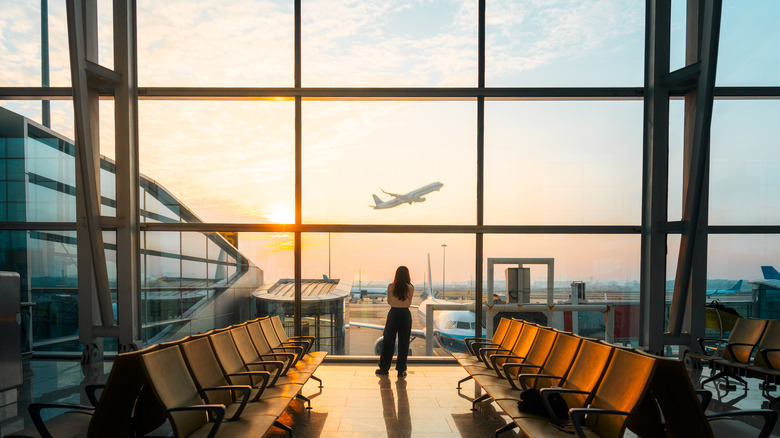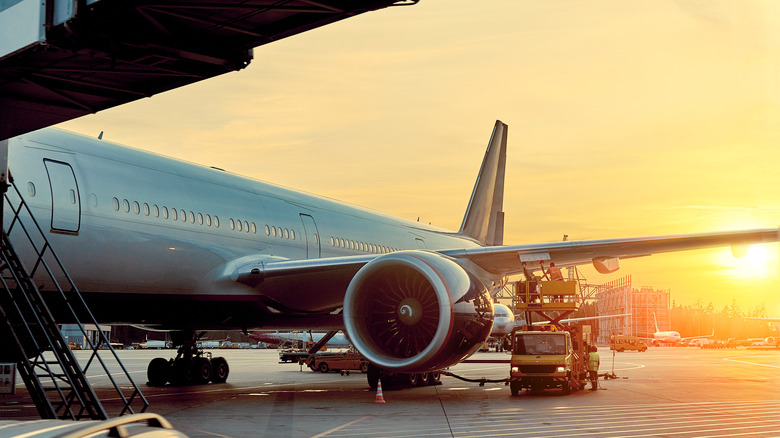Major Airlines Are Quietly Trying To Change Basic Traveler Protections. Here's What To Know
The airline industry is pushing for changes that could significantly impact travelers — and not necessarily for the better. Major U.S. carriers, including American, Delta, Southwest, and United, argue that further deregulation will lower costs and increase competition. But many travelers are concerned this would result in reduced consumer protections, fewer guaranteed rights, and more hidden fees. At a time when airport and travel experiences have worsened thanks to system outages, airport staffing shortages, delays, disruptions due to the COVID-19 pandemic, an increased frequency of permanent flight cancellations, and more, travelers have reason to be cautious.
Airline lobbyists under the Trump administration are reportedly seeking to reverse several passenger-friendly rules — including mandatory compensation for canceled flights that passed in 2024, transparency requirements for "all-in" pricing, and regulations that ensure families can sit together without additional fees. Travel and Tour World has gone so far as to say that these changes would "... [make] it more difficult for passengers to know what they're actually paying for and less likely to receive compensation when things go wrong."
In 2023, the Biden administration proposed a federal law guaranteeing passengers up to $775 in compensation as well as free rebookings and coverage for lodging and meals on U.S. flights caused by circumstances within the airlines' control (i.e., tech outages or mechanical issues). This news was welcomed by travelers and consumer advocacy groups alike, who saw it as a step toward accountability and easier, automatic flight refunds. In 2024, that law officially took effect: the Department of Transportation (DoT) now mandates that airlines must automatically issue refunds for canceled, significantly delayed, or significantly changed flights — a major shift in consumer rights enforcement. But that could all change once again if lobbyists and airlines get their way.
To regulate or not to regulate, that is the question
American consumers already have far fewer protections than EU fliers,even though the U.S. experiences three times more extended delays and a higher probability of cancellations, according to AirHelp (per USA Today). EU passengers have traditionally had mandatory compensation for delays and additional support if flights change (though it's worth noting that the EU is currently experiencing its own debate over whether to increase requirements for delay compensation).
But the U.S. has always been embroiled in a debate over how much regulation is too much. Proponents of deregulation argue that fewer protections lead to lower prices, more options for travelers, and increased competition. Regulation advocates, meanwhile, claim consumer protections are vital, particularly in an industry that has received major government bailouts.
From the 1930s until the late 1970s, the Civil Aeronautics Board tightly controlled airline routes and fares, a system many claimed drove smaller airlines out of business, limited competition, and kept fares too high. In 1978, Congress passed the Airline Deregulation Act, the first time the U.S. government fully deregulated an industry. At first it sparked explosive growth: new airlines launched, routes expanded, fares fell, and the hub-and-spoke model increased efficiency. Eventually, however, overexpansion, recession, market saturation, and airline monopolies weakened the industry. Many of the smaller airlines failed, and others were forced to merge or seriously reevaluate their business strategies. Since then, consumer protections and airline self-regulation have remained in a political tug-of-war, often shifting with each new administration. "Airplane travel has devolved into a truly undignified affair," wrote Richard Finger for Forbes in 2012. Unfortunately, over a decade later, it still may not be on the path to improvement.

